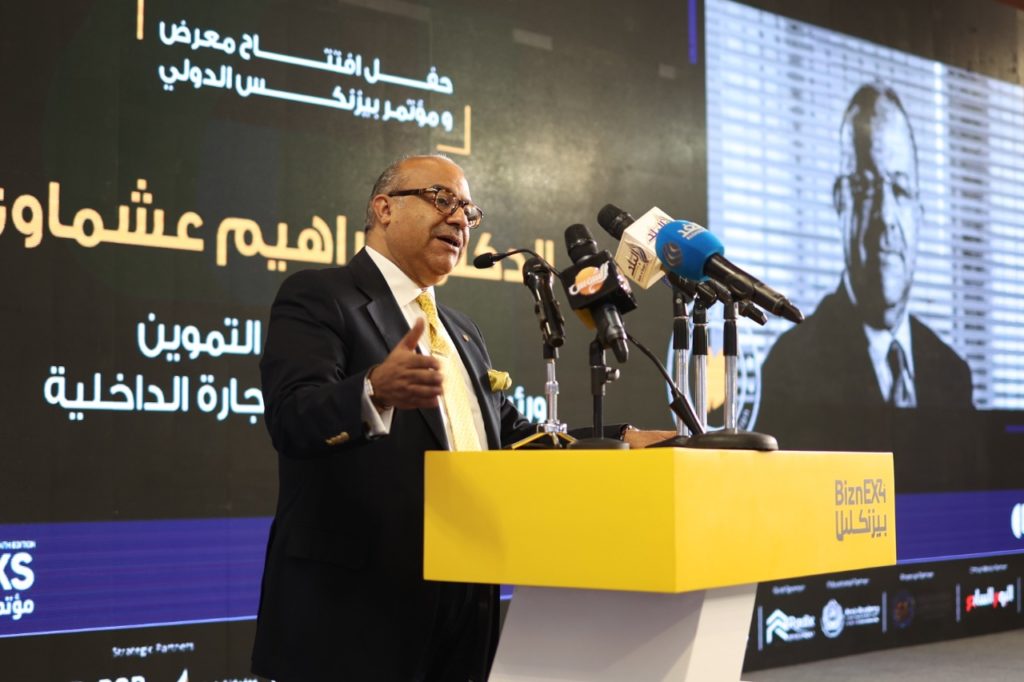Cairo – The deputy minister of Supply and Internal Trade and president of the Egypt Internal Trade Development Authority, Ibrahim Ashmawy (pictured above), said the country leads the way in attracting foreign investment to Africa. He pointed out the volume of foreign investment in the African continent reaches USD 39.5 billion a year, of which Egypt receives a 15% share.
In his speech, on behalf of the minister of Supply and Internal Trade, Ali El-Moselhy, at the Egyptian International Business Conference (Biznex), Ashmawy stated the ministry is continuously working towards the development of internal trade, and 18 projects have been launched in 11 provinces, with an investment of EGP 50 billion (about USD 3 billion at the current rate) destined to several commercial activities.
According to him, last year, the Egyptian economy was one of the three best performing globally, recording a growth rate of 3.4%. Ashmawy added the local trade sector is the most significant contributor to the Gross Domestic Product (GDP), which reached USD 392 billion in 2020, with a 21% share produced by the sector, including activities such as wholesale and retail, transport, logistics, and e-commerce.
The deputy minister also said Egypt was not affected by the coronavirus pandemic like other countries, absorbing the crisis with its strategic inventory. Before 2014, commodities inventory was around a month and a half to two months in the country. Currently, it is enough for over six months, which has given Egypt greater peace of mind to face the crisis, as the government has been seeking to expand it for even more extended periods.
New sources of trade
Ashmawy stated the Egyptian government is working to increase the efficiency of wholesale and retail markets and supply chains by diversifying production sources. Egypt’s first commodity exchange will be launched in the first quarter of 2022. Ashmawy also said the Egyptian market would soon experience the first typical wholesale market, with investments of EGP 8 billion (about USD 508 million) under French management.
He noted strategic warehouses would be built, with EGP 30 billion (about USD 2 billion) investments, to expand the strategic inventory of essential commodities to eight or nine months. The first commodities, he said, will be traded on the Egyptian Commodity Exchange during the first quarter of next year. He added a bill for e-commerce would be discussed, and there would be an Egyptian e-commerce platform for seasonal shows.
The deputy minister highlighted the revenue of e-commerce in Egypt, before the coronavirus pandemic, was at USD 3.6 billion a year and reached, after the pandemic, USD 5 billion, according to data on purchases with credit cards, with cash transactions equivalent to five times the volume of electronic payments.
He explained the causes of global inflation are the sharp increases in the prices of production inputs. Still, the Egyptian market did not have, during this crisis, a shortage of any commodity or service, despite the impact in some European nations. The Egyptian market, he pointed out, did not have any price fluctuation in essential commodities, highlighting the availability of a strategic reserve of 28 essential commodities, with sufficient amounts for a period of up to six months.
Translated by Georgette Merkhan & Elúsio Brasileiro




